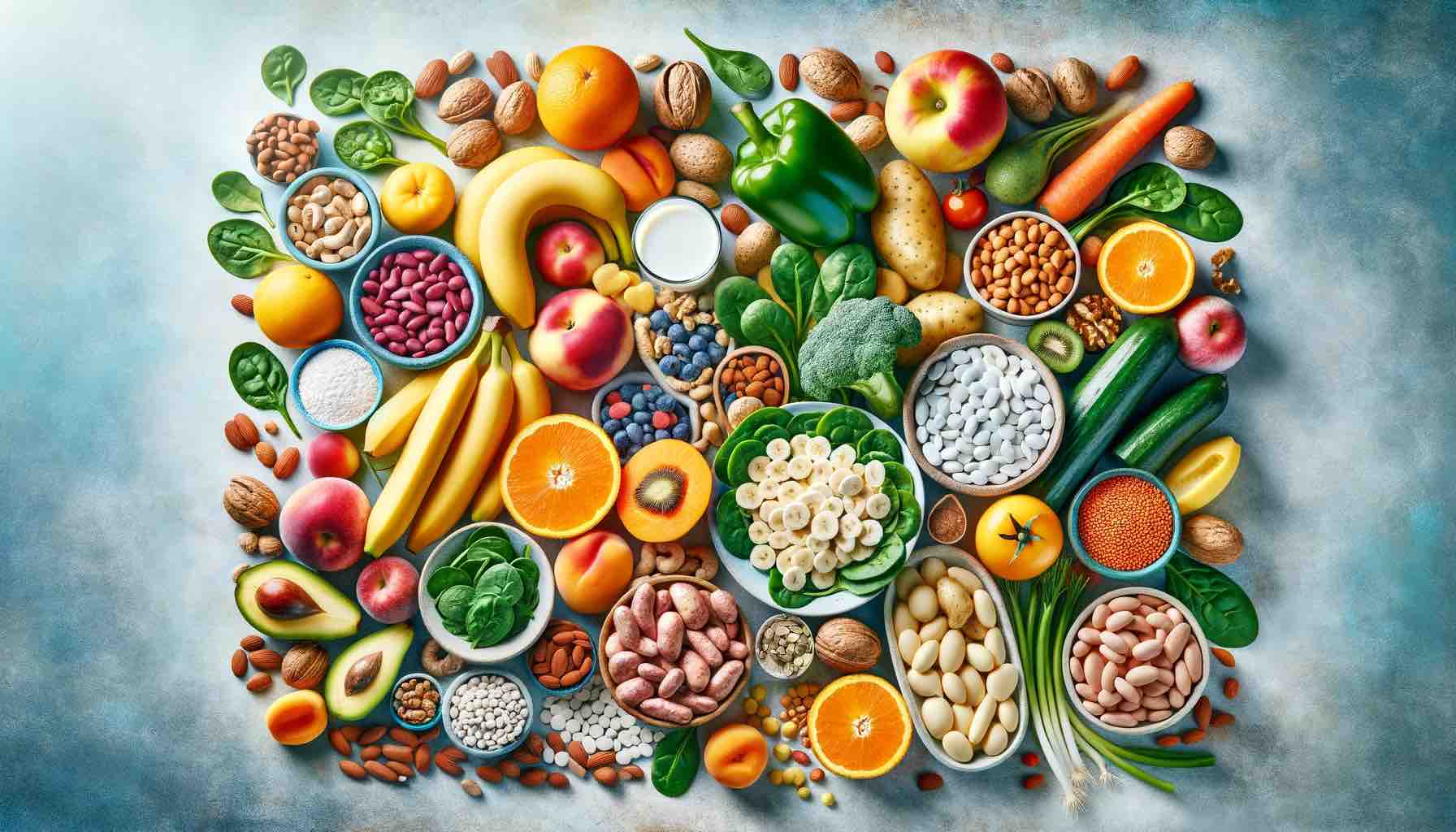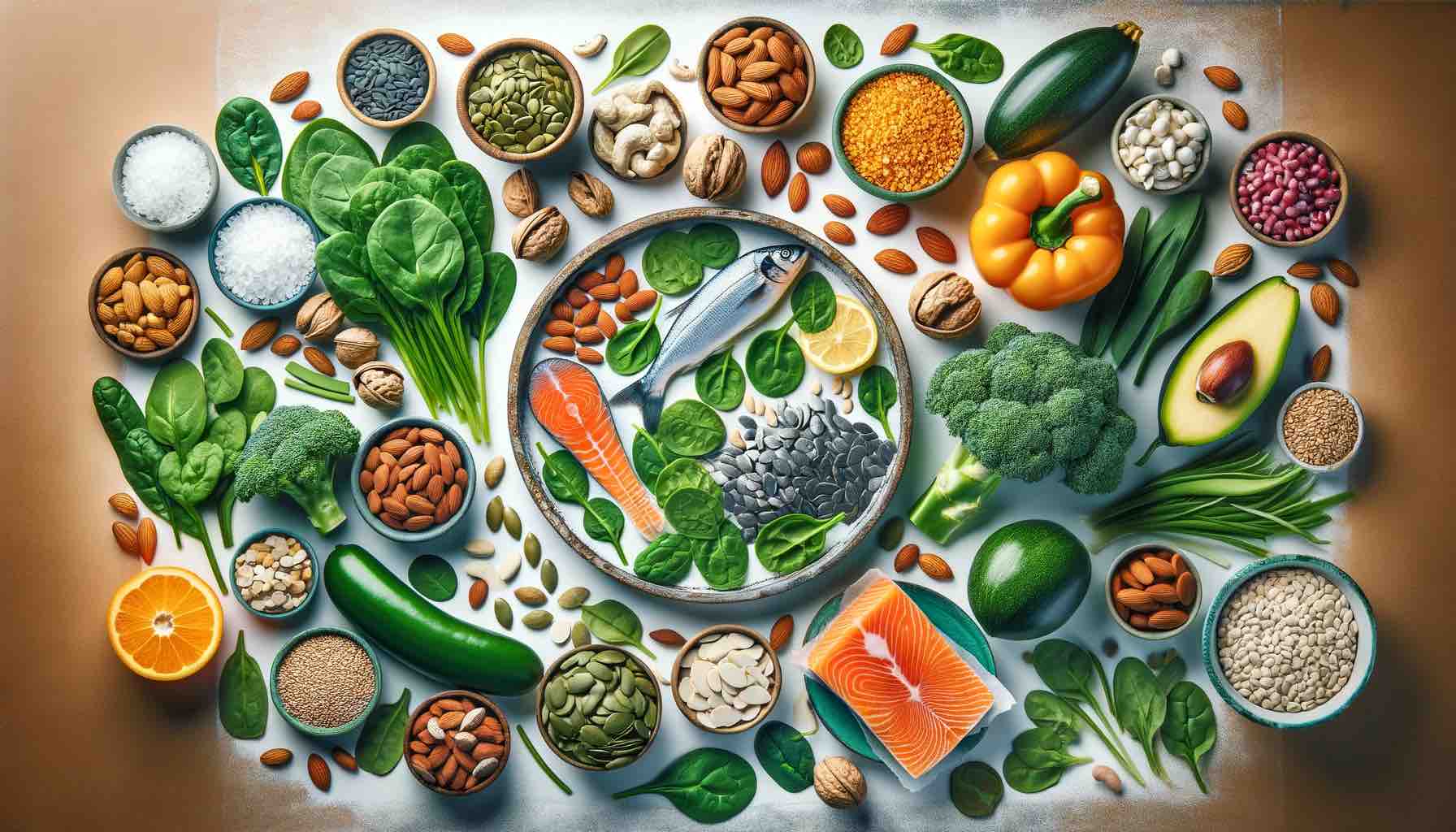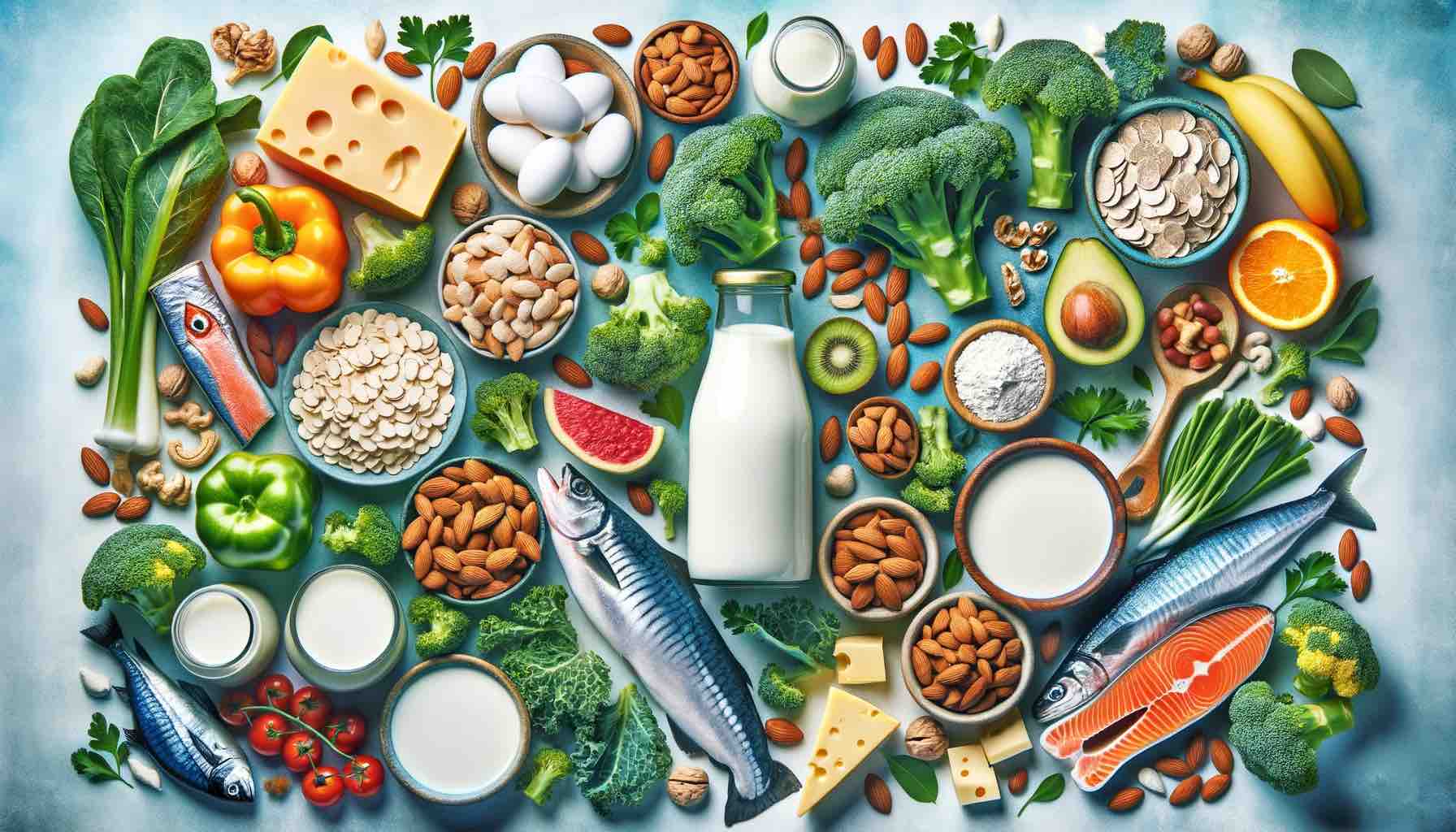
Welcome to our deep dive into the world of potassium – an unsung hero in the realm of minerals that play a pivotal role in our health and well-being. Often overshadowed by its more famous counterparts like calcium and iron, potassium is a key player that deserves its moment in the spotlight. Let’s embark on a journey to explore why potassium is crucial for our bodies, how much we need, and practical ways to ensure we’re getting enough of it.
Why Potassium is a Big Deal for Your Health
Potassium is more than just a part of the periodic table; it’s a life-sustaining electrolyte within our bodies. Here’s why it’s so essential:
- Electrolyte Excellence: Potassium is a star player among the body’s electrolytes. These minerals carry an electric charge crucial for a plethora of bodily functions. About 98% of the potassium in your body is found within your cells, especially muscle cells, making it vital for regular cell function.
- Mighty Muscle and Nerve Function: Imagine potassium as the conductor of an orchestra, ensuring that nerve signals are sent correctly and muscles contract smoothly. This includes your most important muscle – the heart. Potassium’s role in regular heartbeat and muscle function cannot be overstated.
- Balancing Act: In tandem with sodium, potassium helps maintain normal blood pressure. It’s like the yin to sodium’s yang, creating a necessary balance that keeps our cardiovascular system in check.
How Much Potassium Do You Really Need?
Knowing the importance of potassium is one thing, but how much do we actually need? The figures might surprise you:
- For Women: Around 2,600 milligrams per day.
- For Men: Roughly 3,400 milligrams per day.
However, many of us don’t hit these targets. Fear not; we’ll get into how to remedy this shortly.
Potassium: Where to Find It?
You won’t need to embark on an Indiana Jones-style adventure to find potassium – it’s readily available in many delicious foods. Here are some potassium-rich champions to include in your diet:
- Fruits: Think bananas, oranges, and avocados.
- Vegetables: Spinach, sweet potatoes, and tomatoes are your go-to choices.
- Dairy: Yogurt and milk offer more than just calcium.
- Protein Sources: Fish, chicken, and beans aren’t just protein powerhouses; they’re great potassium sources too.
Practical Tips to Boost Your Potassium Intake
Incorporating more potassium into your diet doesn’t have to be a chore. Here are some simple, practical tips:
- Mix It Up: Diversify your diet with a mix of fruits, vegetables, dairy, and proteins. Variety is not just the spice of life; it’s the key to a balanced diet.
- Smart Snacking: Opt for potassium-rich snacks like a banana or a handful of nuts. They’re not just healthy; they’re convenient too.
- Cooking Matters: How you prepare your food can affect its potassium content. Steaming or baking is preferable to boiling, which can cause potassium to leach out.
- Potassium Partners: Pair potassium-rich foods with those high in vitamin C (like citrus fruits) to enhance absorption.
- Mindful Eating: Pay attention to what you eat. Processed and fast foods are often low in potassium and high in sodium, disrupting the delicate balance.
Conclusion: Potassium – A Silent Guardian of Your Health
Potassium might not always be in the limelight, but its role in our health is as critical as any leading nutrient. By understanding its importance, knowing how much we need, and incorporating potassium-rich foods into our diet, we can take proactive steps towards maintaining our health and well-being. Remember, a potassium-rich diet is not just a choice; it’s a lifestyle shift towards a healthier you!
Your journey towards a healthier lifestyle doesn’t have to be a solo venture. Share your thoughts, experiences, and favorite potassium-rich recipes in the comments below. Let’s create a community of health and wellness together! 🍌🥦🥑🧡
10 FAQs About Potassium
- What Foods are Highest in Potassium? Bananas, oranges, spinach, and sweet potatoes are excellent sources. For a protein kick, opt for fish, chicken, or beans, which also pack a potassium punch.
- Can I Get Enough Potassium from My Diet Alone? Absolutely! A balanced diet rich in fruits, vegetables, dairy, and protein is typically sufficient to meet your potassium needs. Pay attention to including potassium-rich foods in your meals.
- How Does Potassium Benefit My Heart Health? Potassium is vital for maintaining a regular heartbeat and works with sodium to help control blood pressure, thus playing a significant role in cardiovascular health.
- Are There Risks to Consuming Too Much Potassium? While it’s rare, excessively high potassium levels can lead to hyperkalemia, affecting heart rhythm. It’s important to balance potassium intake, especially if you have kidney issues.
- What Are Some Quick, Potassium-Rich Snacks? Bananas, oranges, yogurt, and nuts are great for on-the-go snacking and are excellent sources of potassium.
- How Does Potassium Affect Muscle and Nerve Function? Potassium is crucial for the proper functioning of nerves and muscles, including muscle contractions and transmitting nerve signals.
- Does Cooking Affect the Potassium Content in Foods? Yes, cooking methods like boiling can reduce potassium levels in foods. Steaming, baking, or eating raw are better options to retain potassium.
- Is Potassium Important for Athletes? Definitely! Potassium helps with muscle function, hydration, and recovery, making it essential for athletes and those with an active lifestyle.
- Can Potassium Help with Blood Pressure Management? Yes, potassium plays a key role in regulating blood pressure by balancing out the negative effects of sodium.
- What Are the Signs of Potassium Deficiency? Symptoms can include fatigue, muscle weakness, and cramps, irregular heartbeat, and digestive issues. If you experience these, consult a healthcare professional.
Blog Tags for the Post
potassium benefits, healthy eating, heart health, muscle function, nerve health, potassium-rich foods, balanced diet, electrolytes, blood pressure management, nutrition tips, dietary minerals, wellness lifestyle, potassium intake, natural foods, health and fitness, muscle recovery, athlete nutrition, hydration, potassium in diet, cooking and nutrition, symptoms of deficiency, potassium sources, dietary planning, health education, body wellness, potassium FAQ.












